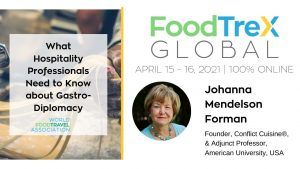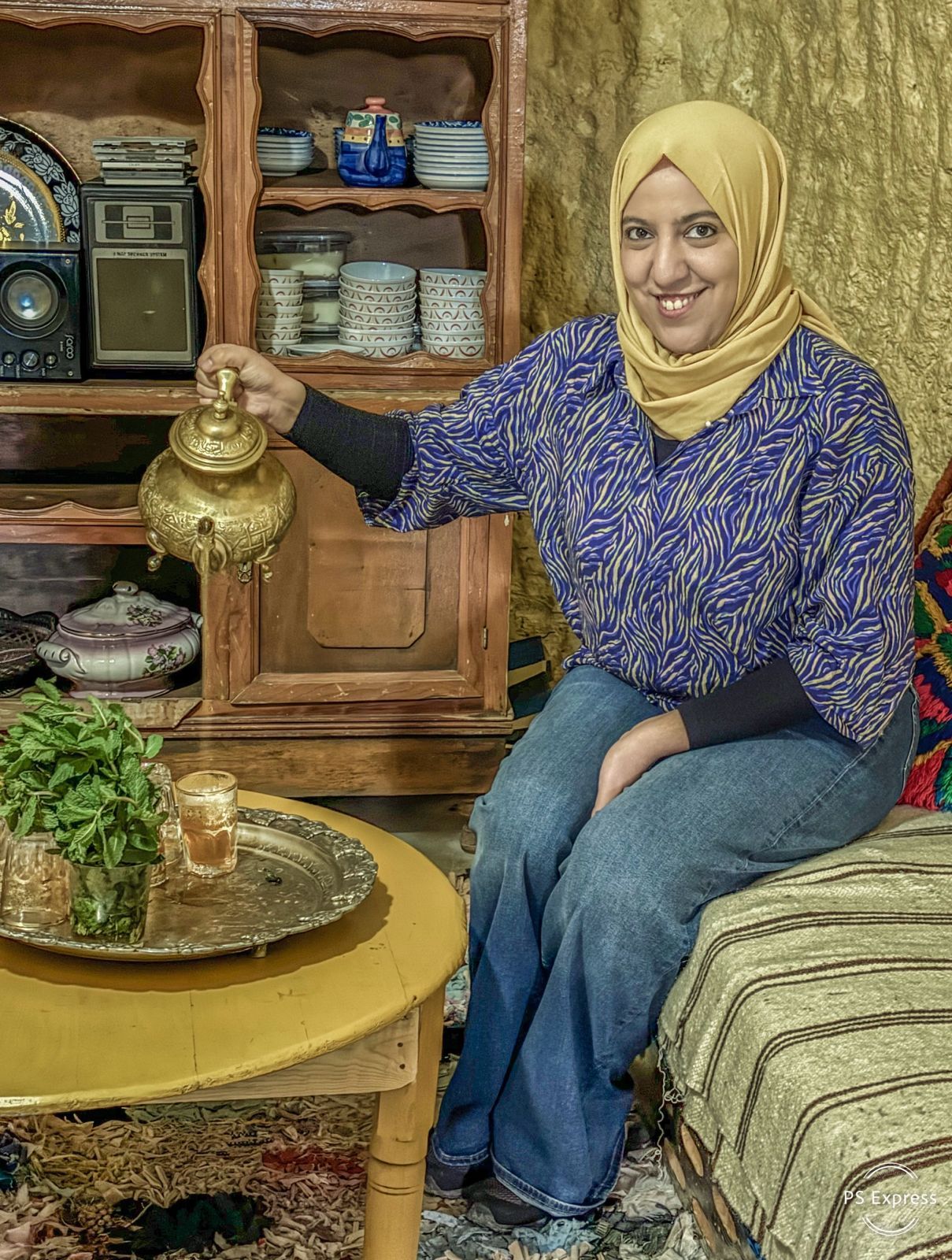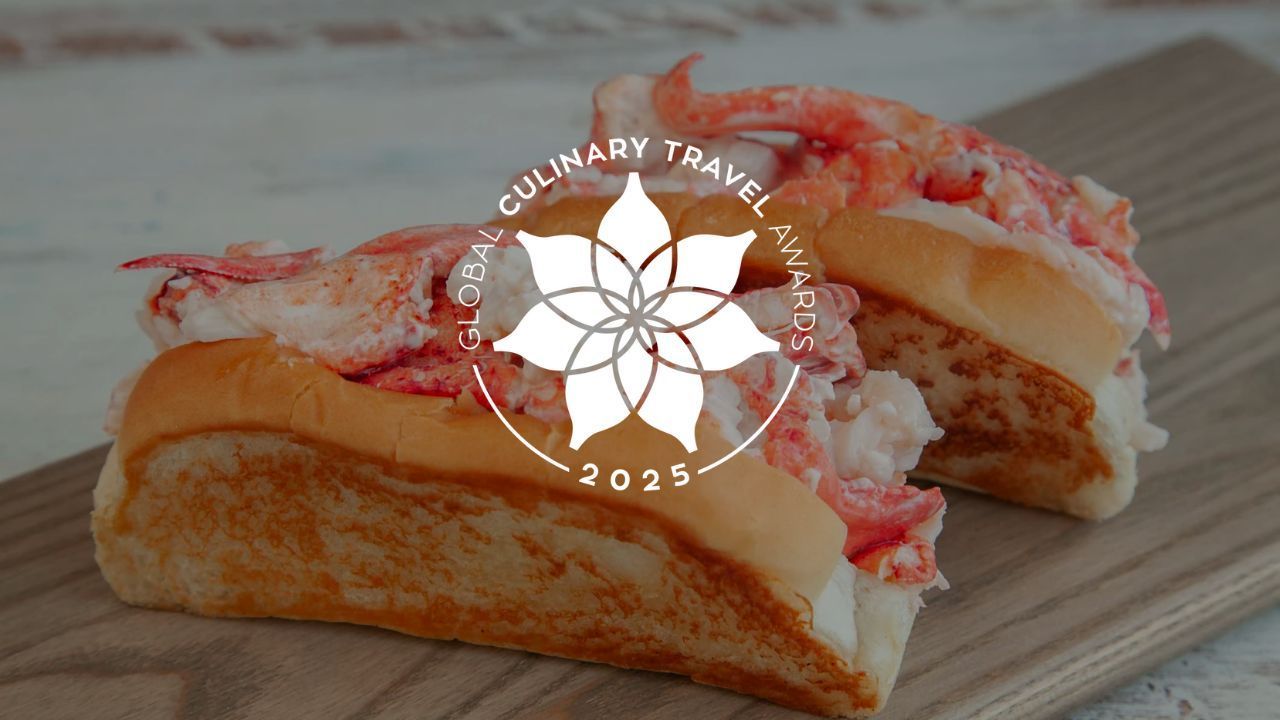How Gastrodiplomacy Connects Food, Tourism & Sustainability

In previous articles we highlighted the relationship between sustainability in food and beverage tourism, innovation and inclusivity. There is yet another dimension that influences people and situations by bridging gaps among communities and encourages the development of relationships and learning from one other. We call this “gastrodiplomacy” and plays a big part in the sociocultural and economic aspects of sustainability. Gastrodiplomacy has immense potential to help develop food and beverage tourism in a sustainable way.
At the World Food Travel Association, we have always worked to nurture sustainability in food and beverage tourism. This year we are holding our FoodTrex Global Summit on April 15th -16th to focus squarely on sustainability in culinary tourism to help businesses and destinations achieve balanced growth while marketing to food- and beverage-loving travelers.
Food has always been more than a necessity. Every food and beverage business relates to the tourism sector in more ways than many people suspect. Culinary culture is an intangible heritage and asset that promotes experience, creates memories and nurtures connections. Gastrodiplomacy was a natural evolution of leveraging the power of food to play an important role in politics and social diplomacy. Paul Rockower presented this concept simply as a“method of reaching hearts and minds through people’s stomachs.” That is just the start of what we mean with the idea of gastrodiplomacy.
People tend to associate and identify certain foods with particular destinations, peoples and cultures. For example, how kimchi immediately reminds us of Korea or how baklava reminds us of treats from Turkey or Greece. In 2002, the Thai government introduced its Global Thai campaign by using Thai food and beverage to promote the country globally and open multiple Thai restaurants around the world. Eventually, countries around the world came to recognise the power of food to nurture memorable experiences by building the destination’s brand image with culture and community. This has also been called soft power diplomacy.
Gastrodiplomacy, from a tourism perspective, can satisfy the needs of multiple stakeholders. It increases visitor numbers and tourists’ involvement by helping visitors to engage with the local culinary culture. Additionally, it helps to link tourists with the local community by bridging the gap between nations. Gastrodiplomacy starts with the simple act of nurturing awareness. It eventually leads to the coalition of culture, customs and experiences.
When we look further, combining gastrodiplomacy with tourism helps to create a sustainable destination brand and image. It also contributes to long-term business growth in the food, beverage, hospitality and tourism sectors.
Countries like Thailand, Peru, Japan, South Korea, Spain, Italy and others, understand the value of food in building destination image. They constantly seek opportunities, like funding campaigns to elevate awareness of their culinary heritage. Hospitality professionals play a significant role because we are responsible for attracting tourists to visit and then helping them to engage with the local people and their culinary culture.
This is just a very quick introduction to gastrodiplomacy. For those who want to learn more about the power of gastrodiplomacy and how it can contribute to a sustainable food and beverage tourism strategy, we have invited Johanna Mendelson Forman, an expert and leader in gastrodiplomacy, to discuss this very issue at our upcoming FoodTreX Global Summit. Johanna is a leader in the Social Gastronomy movement and consistently advocates for culinary diplomacy. Apart from working as an adjunct professor at American University, she is also a member of the Council on Foreign Relations and Director of Food Security at the Stimson Center. She works hard to bring new perspectives on the nexus of food and conflict. Join us for this session that will provide you with as different way to use food and beverage as a destination marketing tool.
Written by Nivethitha Bharathi. Edited by Erik Wolf.











